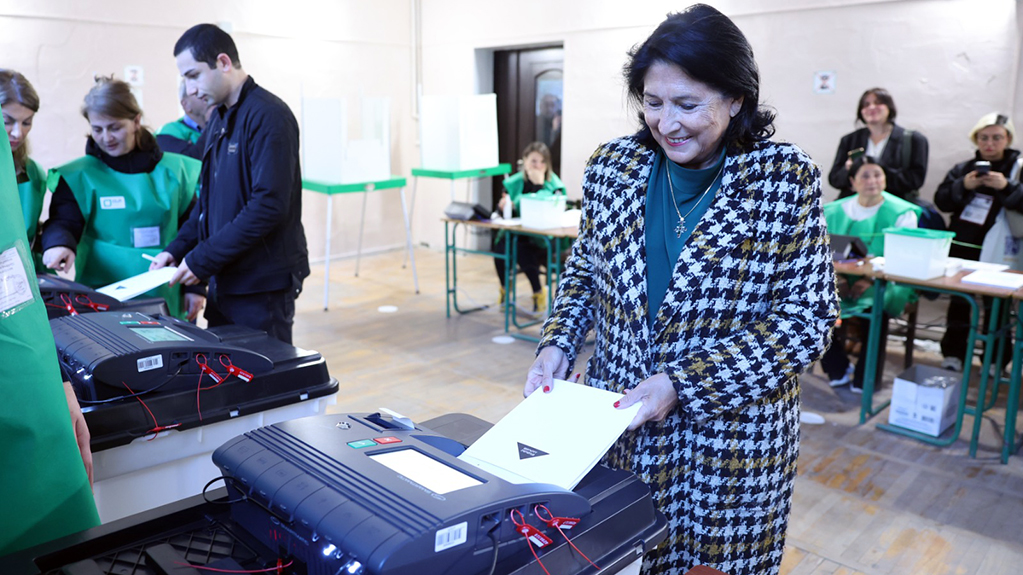The Central Election Commission has accused President Salome Zourabichvili of discrediting electronic voting technologies and attempting to mislead the public.
News
Trending stories
- 1 Former Prime Minister Garibashvili Sentenced to Five Years in Prison After Plea Deal
- 2 Otar Partskhaladze Charged with Organizing Murder of Businessman Levan Jangveladze
- 3 Shalva Papuashvili Says Georgian Dream Filed Complaint with BBC
- 4 Georgian Dream Party Further Tightens Grants Law, Introducing Up to 6 Years in Prison
As per a statement issued by the Central Election Commission (CEC), the president "stirs up mistrust of technology in society with baseless, unsubstantiated, and false accusations" during public speeches and interviews given to various local and international media.
"At the international level, the president is attempting to discredit the election administration, which organized the most important elections at the highest level. The observation missions of OSCE/ODIHR and other international organizations have confirmed in their statements and evaluations that the elections were administered in a qualified and professional manner. However, the president tries to portray the situation differently.
Salome Zourabichvili assures the public that the elections were 'totally falsified,' making incredible accusations, such as the claim that voting with one identity was done multiple times," the CEC stated.
The election administration asserts that with the electronic technologies used in the October 26 elections, it is impossible to duplicate a voter in the voter list; each voter is included in the list only once.
"Accordingly, it is impossible to vote multiple times with one identity, as double verification ensures that one voter is not registered in several precincts. Although there is no evidence to support this, the president claims that 'technology was used to whitewash the counterfeiting.' He discusses this extensively with international media and high-ranking officials from various countries.
Electoral technologies functioned properly on October 26, as confirmed by all the international and local observation organizations, election entities, and media representatives who observed the process. Against this backdrop, the attempt to discredit electronic technologies is nothing but a denial of reality and an attempt to mislead the public based on political interests," the Central Election Commission stated.
The President of Georgia, along with the four opposition parties that crossed the threshold, does not recognize the results of the parliamentary elections as legitimate. He contends that "all known resources of forgery" were used, including new technologies. "These are electronic voting devices, which are supposed to be autonomous but were not used as intended. They were used in a 'carousel' manner, allowing individuals with borrowed ID cards to vote at different polls multiple times without the possibility of verification," the president said in an interview.
The coalition of observational organizations My Vote also claims that a pre-planned, organized fraud scheme was in operation during the election, using verification machines where ID numbers were entered.
The parties Gakharia - for Georgia and Unity - National Movement are requesting the CEC to allow voters to individually verify their presence on the list of those who participated in the elections. In particular, Giorgi Gakharia stated that voters should be able to check whether they participated in the elections, in which precinct they voted, and at what time.















